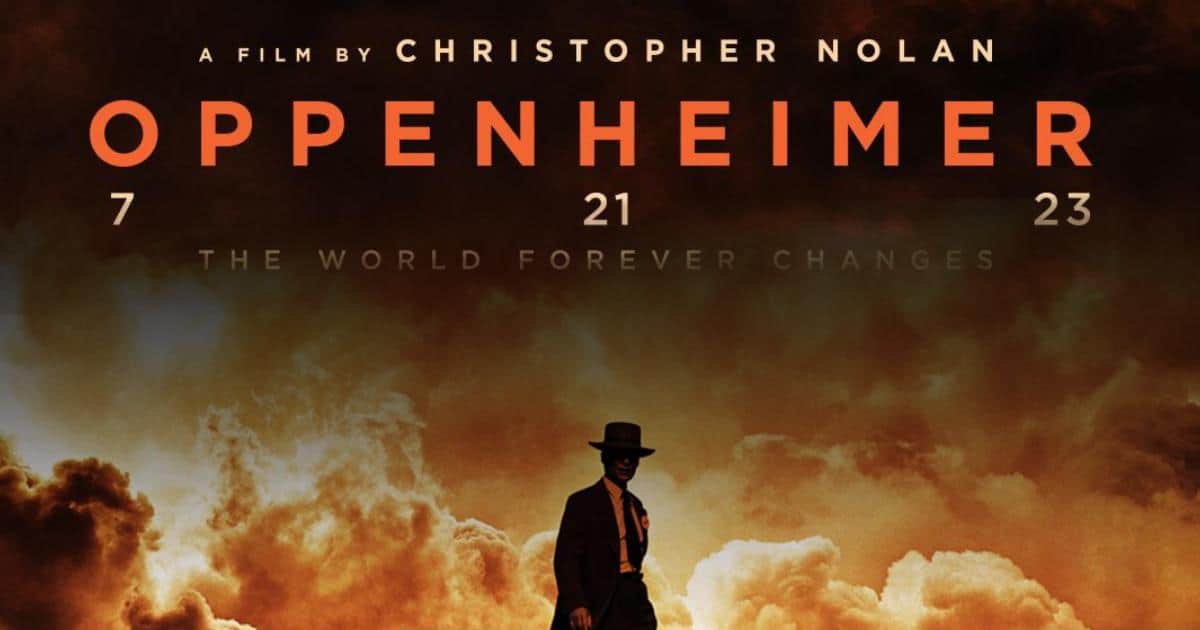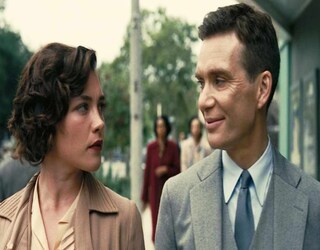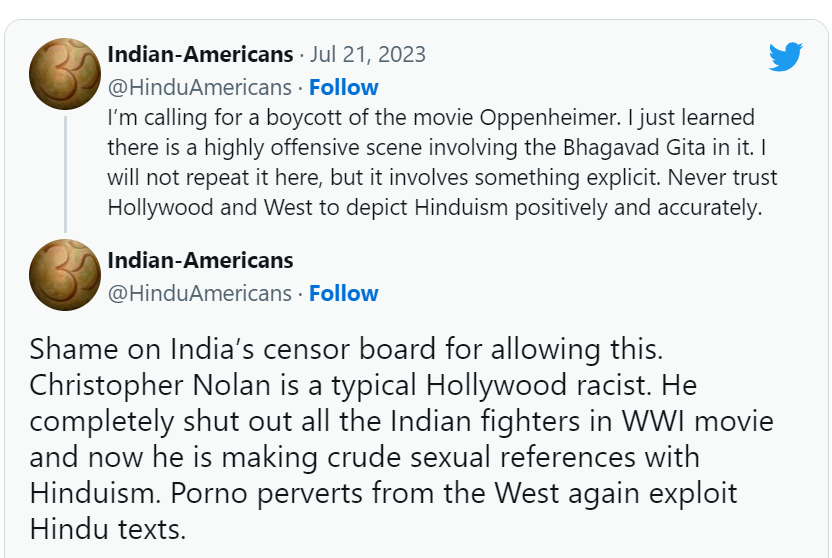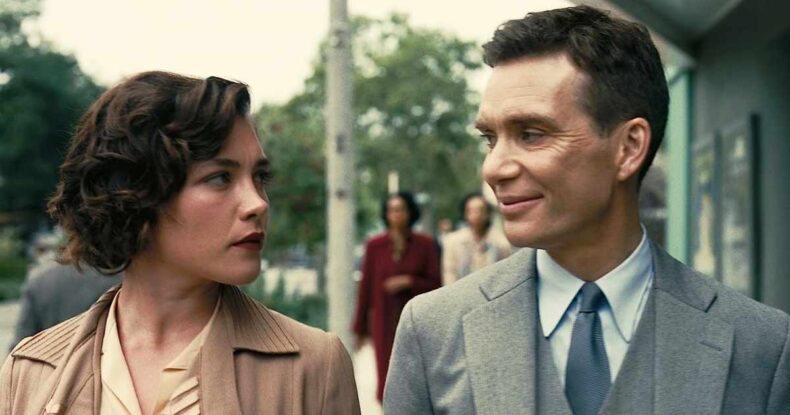J. Robert Oppenheimer was an American physicist and key figure in the Manhattan Project during World War II. Born in 1904, he played a crucial role in developing the atomic bomb, leading the Los Alamos Laboratory. His scientific brilliance and leadership significantly contributed to the successful testing of the first nuclear weapon in 1945.

- Who was Oppenheimer
- The CBFC (CENTRAL BOARD OF FILM CERTIFICATE) Controversy
- Boycott: Reactions from Indian citizens
- Anurag Thakur’s reaction
- Is it really worth the backlash
- Political angle
Who was Oppenheimer
J. Robert Oppenheimer, born in 1904, was an American physicist who achieved legendary status for his pivotal role in the Manhattan Project during World War II. As the director of the Los Alamos Laboratory, he led a team of brilliant scientists in the development of the atomic bomb. Under his guidance, they successfully conducted the Trinity test, the first detonation of a nuclear device in 1945.
The use of the atomic bomb on Hiroshima and Nagasaki deeply affected Oppenheimer. While he acknowledged its military significance, he also became increasingly concerned about the ethical and moral implications of such a devastating weapon. He famously quoted the ancient Hindu text, the Bhagavad Gita, stating, “Now I have become Death, the destroyer of worlds,” reflecting his conflicted emotions regarding the bomb’s impact on humanity.

The CBFC (CENTRAL BOARD OF FILM CERTIFICATE) Controversy
The Christopher Nolan-directed movie Oppenheimer released on 21st July, has landed in the eye of the storm over controversial sex scenes where the actor Cillian Murphy And Florence Pugh is depicted with a line from Bhagavad Geeta the holy script of Hindus. This has jeopardized the movies Triumph as the sentiments of Indians are damaged deeply.
Boycott: Reactions from Indian citizens

Many raged netizens have sought after the Twitter platform to express their displeasure, as one netizen wrote, “ I’m calling for a boycott of the movie Oppenheimer.” this comment was done right after the netizen became aware of the offensive scene involving Bhagavad Geeta in it.
Anurag Thakur’s reaction:
Anurag Thakur, minister of Union and information and broadcasting has rapped CBFC for clearance of the film in first place. Thakur had solicited the censor board why has it allowed the film to be shown so far. He even sought to get the scene removed and charges could be pressed against those who cleared the film.
Is it really worth the backlash:
The interpretation of Oppenheimer’s actions and their connection to a romantic encounter with Jean Tatlock in the film raises questions about his understanding of certain elements. As a renowned figure, often called ‘the father of the atomic bomb,’ the film’s portrayal may lead to different reactions from the audience. Some might be shocked by the events depicted, while others might feel outraged at what they perceive as a misrepresentation of a religious text.
Regardless of the interpretation, it’s clear that the film uses Oppenheimer’s romantic encounter with Jean Tatlock to draw a parallel between their relationship and his passionate but destructive involvement with the atomic bomb. This artistic connection attempts to bring about a sense of poetic justice within a neo-postmodernist context, appealing to a contemporary global audience.
Political angle:
Another frame of mind is political to it, as many reports suggested taking a dig at the right winged group undeviatingly. As the politicians have demanded eliminating the scene completely from the movie due to its unsuitable context with regard to Bhagvad Geeta and Hinduism. Also, some have sought to write a public open letter to Christopher Nolan- the man himself. Consolatory assurance is given by the Censor Board by adding up CGI effect to the sex scene and implicating it by what looks like a black CGI dress worn by Florence Pugh.
The film “Oppenheimer” has sparked controversy in India for depicting a romantic encounter with a line from the Bhagavad Gita, a revered Hindu scripture. Indians have expressed displeasure, with calls for a boycott and criticism of the film’s approval by the CBFC. The portrayal raises questions about handling historical figures and religious texts in cinema. Balancing creative freedom and cultural sensitivity is essential, promoting open dialogue and mutual understanding between filmmakers and audiences.












